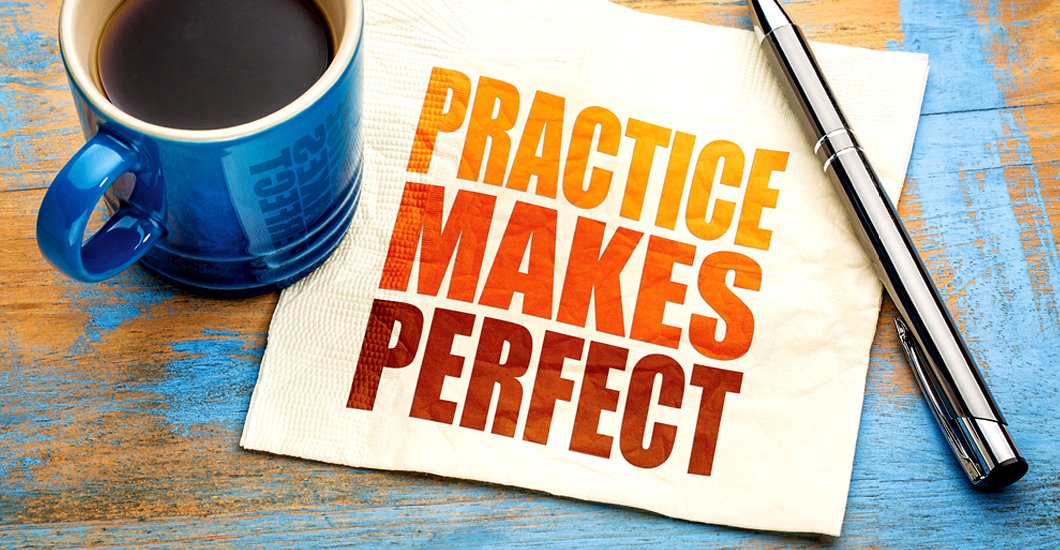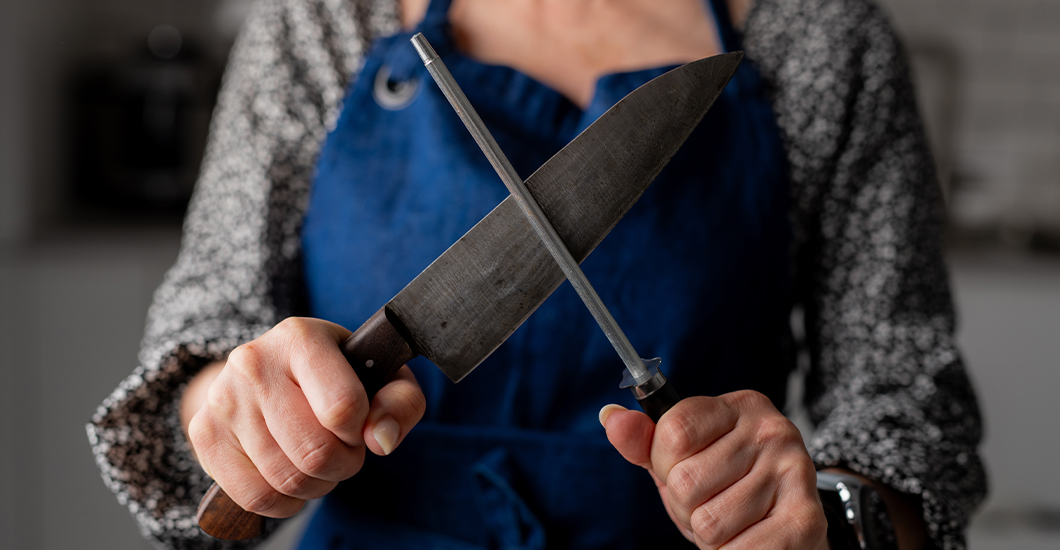Trending Articles
Practice Makes Perfect
Although we do not like to admit it, even to ourselves, we still believe that prayer happens suddenly or never happens at all. We kid ourselves that saints are born or created by an arbitrary decision of God who every now and then suddenly decides to top up humanity’s quota. This is a comforting idea that we harbor at the back of our minds because it absolves us from any serious effort to live in union with God.
The predicament of the alcoholic is but a dramatic blown-up picture of all of us. The fact that our perilous plight is not so obviously dramatic is a mixed blessing. If it were, it would at least force us without undue delay to see ourselves stripped naked of all falsity and pretension, to face stark reality. Then we might come to a moment of decision that we might otherwise cowardly evade, drifting into a life of superficiality, merely existing on the surface of human experience. Often when an alcoholic hits rock bottom he or she becomes serious about changing his or her life by surrendering and dedicating his or her life to God through hard work, by practicing new habits.
Alice made no secret of the fact that she was an alcoholic, although she had been “dry” for five months. She was only 26 when I met her but she had concertinaed the sufferings of a lifetime into a period of about five years. She had been through two marriages and was mixed up with a seedy set of degenerates who led her astray. In the end, she broke down under the strain of her lifestyle and took to the bottle. She used to drink between two and three bottles of whiskey a day. In desperation, she went to a local parish priest but he could do nothing for her. On one occasion, he took her to Alcoholics Anonymous, but she refused to go again so even they could not help. Things came to a head when she threatened to denounce the priest to the police for sexually assaulting her if he refused to buy her more drink. This seemed to be the last straw. She was brought up in a strict Irish home so the way she behaved toward the priest shook her into the realization of how low she had sunk. She smashed every bottle she could lay her hands on and rushed off screaming for help to Alcoholics Anonymous.
The leader of the center told her there was nothing they could do for her until she reached “rock bottom” and admitted to herself that she was an alcoholic and absolutely helpless. Then they could step in and begin to help her to help herself. Until she faced reality and made this admission, they could do nothing. He admitted that one of the hardest parts of his job was to wait helplessly looking on until she reached the depths.
He gave her a pamphlet containing the 12 steps of recovering alcoholics. The first was to admit they were powerless to help themselves and their lives had become unmanageable. The second was to come to believe in a power greater than their own which could restore them to sanity. The third was to turn their lives over to God as they understood Him. The other steps amplified these and emphasized the need to face up honestly to past faults and to try to make amends to those whom they had caused so much suffering.
There can be no fresh start, no renewal in the life of any individual, group or community unless we are able to see and admit our own inadequacy and past failures. Once we begin to see, to experience and to admit our weakness, then we can begin to appreciate the fundamental principle of the spiritual life, namely that we cannot go a single step forward without God, not a single step. The Gospel does not say, “Without me, you will not be able to get very far.” It says, “Without me, you can do nothing” (John 15:5). Without me, nothing!
The trouble is we just do not believe this, except as a purely academic principle of theology that we scandalously disregard in our day-to-day lives. We beat our breasts with a sponge, reach for a drink and nibbles and slump down in front of the television. If we did believe it, then we would scream out for God’s help; we would go to Him, find time to open ourselves to His healing power and urgently create space in our lives for prayer. The space and the time we find in our daily life is the practical sign of our sincere acceptance of our own weakness and of our total belief in God’s power, which alone can help us.
You might say, “I would like to be a concert pianist or speak fluent French or become a scratch golfer” but I will only believe you mean it when I see you practice it for several hours a day. I will take you seriously when I see you hard at it, day after day on the piano or studying French grammar or tramping around the golf course. You would hardly meet a Christian, let alone a religious, who would not say he or she desired to come closer to God, to become possessed by Him, to build up a deeper prayer life. How can this be believed until a person relentlessly practices prayer, day after day? The desire is not enough, any more than are good intentions. Every alcoholic who desires to be better is full of good intentions, even high ideals, but something more is required.
Learning to pray, learning to open ourselves to God, is like anything else: it needs practice and it takes time. There is no accomplishment of any worth that I know of that you can attain merely by desiring to have it. We think nothing of spending hours a day and working for years to get a degree, pass an examination or attain certain qualifications, and we quite rightly accept as a matter of course that the time we give and the energy we expend is necessary. Somehow we seem to think that prayer is an exception but believe me it is not. Those who wish to succeed in a particular accomplishment have to give hours of time, even if they have flair or genius.
I heard an interview on the radio given by Arthur Rubinstein, the concert pianist, some years ago. Here is a man who was arguably the greatest pianist of the last century and yet at the age of 84 he admitted that he needed to practice for six hours a day. In his prime, he practiced for nine! Although he had a musical genius at the age of three, it took a lifetime to master the technique necessary to facilitate and maintain the growth of that genius and to enable him to share it with others on the concert platform.
The same could be said of hundreds of great artists, performers, athletes and people from all walks of life who reach the top of their particular branch of human achievement. What right do we have to imagine that prayer is an exception to the rule because it certainly is not? We are supposed to be dedicated to the mastery of the art of arts and, at best, we drift aimlessly along like half-baked amateurs dabbling in something that demands the full potential of the professional.
If we are only prepared to give the same daily time to prayer that would be required to reach a fairly reputable standard on the piano, then, in time, our lives will be dramatically and irrevocably changed. We might start with 10 minutes a day and gradually extend that period as we master the preliminaries, but as the months go by, the period will gradually extend so that in the end the problem will be to restrain rather than prescribe a minimum time.
If all goes well, the prayer that starts and develops at set times ought to spread out gradually and filter through into the rest of the day. In the end, it will become co-extensive with all and everything we do. To begin with, the prayer period will be like a desert: dry, arid and barren. It will eventually become an oasis in our lives that we cannot do without. However, that is not the end, it is only the beginning. In the end, the oasis will become a fountain that will well up and brim over to irrigate the whole of our lives, as what Saint Paul calls “the prayer without ceasing” transforms our daily spiritual lives enabling us to say with him, “It is no longer I who live, but it is Christ who lives in me.”
David Torkington (www.DavidTorkington.com) is a Spiritual Theologian, Author and Speaker, who specializes in Prayer, Christian Spirituality and Mystical Theology. He was educated at the Franciscan Study Centre, England, and the National Catholic Radio and Television Centre, Hatch End, London, where he was later appointed to the post of Dean of Studies. He was extra mural lecturer in Mystical Theology at the Dominican University in Rome (The Angelicum). In addition to giving Retreats and lecturing all over Europe, he undertook five prolonged lecture tours to Africa, mainly Equatorial Africa, speaking on Prayer and Spirituality to Religious, Monks, Diocesan Priests and lay people. His personal spirituality is predominantly Franciscan, his Mystical Theology Carmelite, all welded together with a solid blend of Benedictine moderation. He has sold over 300,000 books in more than twelve different languages. His most successful book is "Wisdom from the Western Isles," the popular "Peter Calvay Trilogy" (Hermit, Prophet, Mystic) re-edited in one volume in which he teaches the reader how to pray, from the very beginning to what Saint Teresa of Avila calls the Mystical Marriage. He is at present working on his latest book, "Wisdom from the Christian Mystics" which will be followed by his autobiography "Injured Innocence." When not writing, he spends time on his boat on the peaceful Beaulieu river in the New Forest, Hampshire, and exploring the Jurassic coast, Dorset. He is a member of The Athenaeum, Pall Mall, London. The three books mentioned in the article are “Wisdom from the Western Isles, Wisdom from Franciscan Italy” and “Wisdom from the Christian Mystics.” All are available from Amazon.co.uk or Amazon.com or from any bookshop.
Latest Articles
Want to be in the loop?
Get the latest updates from Tidings!








